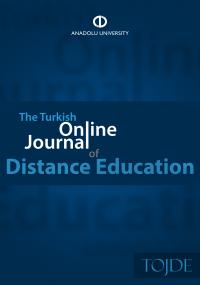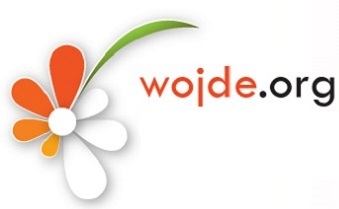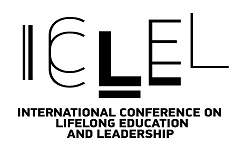
UDEEEEWANA Awards
ARTICLE 1: OBJECT
UDEEEWANA invites applicants for the awards. Awards are open to all UDEEEWANA’s member institutional, commercial, individual members and at any level distance educator from any regions of the world. ICDEEEWANA’s officiers and all committe members do not apply fort the UDEEEWANA Awards. These awards recognize, showcase and promote educational projects and activities that have demonstrated a transformative impact upon societies and communities over a period of time.
Awards categories and prize kinds will announce later dealt with reward concrete, action-oriented educational projects that have improved learners’ lives.
ARTICLE 2: ELIGIBILITY OF APPLICANTS
2.1 Eligible applicants are individuals who represent a project and the team associated with it, working in any sector of education, any type of organization and from any part of the world, whose achievements can be considered as outstanding around the UDEEEWANA regions.
2.2 For these regulations, ICDEEEWANA understands by:
- "Any sector of education": all types of education including (but not restricted to) pre-primary, primary, secondary, tertiary, vocational training, further and higher education, special needs education, education for people with disabilities, informal learning, distance-based, non-formal and lifelong learning.
- "Any type of organization": all types of organization operating in any education sector, including colleges, universities, academic networks, schools consortia, civil society and community organizations, governments,
- international agencies and private-sector companies working in the field of education.
- “Any part of the world”: all regions of the world.
2.3 Previous recipients of the UDEEEWANA Awards are not eligible to apply for two times in a arow. Likewise, other people involved in the projects and/or activities that have received Awards in previous editions of the UDEEEWANA Awards are not eligible to apply for the same project or activity. Anyone else who has submitted an application to previous editions of the UDEEEWANA Awards can submit a new application for the same -or for a different- project, providing that it conforms with the UDEEEWANA Awards criteria. Anyone else who has submitted an application to previous editions of the UDEEEWANA Awards can submit a new application for the same -or for a different- project, providing that it conforms with the UDEEEWANA Awards criteria. Please note that criteria and the application forms will be changed over time. All applicants must guarantee that their organization, or they themselves, originated the project, for any action or claim from a third party with respect to the project submitted.
2.4 Contact details and complete information on two external referees (e.g. former donors, local governments, other NGOs, etc.) must be included in all applications. Valid referees include individuals from external organizations who can provide commentary on the activity of your project. The referees will be contacted if the project is selected as a finalist and asked to provide a letter of support. Failure to include details of referees will automatically lead to the rejection of the application.
2.5 Only one application can be submitted for a single education activity or project. If more than one application is received for the same activity or project, all applications for that project will be deemed to be ineligible. This condition also applies in instances where different organizations submit similar applications for the same educational activity or project. Individuals may only submit a single application. Other individuals working for the same organization are allowed to submit different applications for different educational activities.
2.6 If the project is limited in duration, the applicant must provide a beginning and end, date on the application form.
2.7 The initial applicant will be the recipient of the Award. Teams of individuals should select a Project representative to apply and be the recipient of the Award.
2.8 People working for the WISE initiative in any way are not eligible to apply.
ARTICLE 3: SUBMISSION PROCESS – TIME SCHEDULE
3.1 SUBMISSION PROCESS
Applications must be submitted by email. All applications should be uploaded using the filename “projectname.doc”. The language of applications for the UDEEEWANA Awards is English. Whilst the quality of written English is not a criterion for assessing applications, it is strongly recommended that applicants whose first language is not English pay particular attention to ensuring that their applications can be properly understood in English.
3.2 TIME SCHEDULE
The deadline for submission of applications is January of every year, 2014, 13.00 GMT.
The Pre-Jury will then review all eligible applications.
The pre-selection of the 15 Finalists will be announced in April.
The 15 Finalists will then be visited on-site by the UDEEEWANA team.
The Jury will review all the 15 Finalists and the evaluations conducted on-site.
ARTICLE 4: SELECTION CRITERIA
Applications will be specifically evaluated on Part 3 of the official application form, in which they are asked to provide evidence concerning the nine selection criteria. All other sections are mandatory (unless specified otherwise) and will serve to provide a better understanding of the overall project.
4.1 FORMAL REQUIREMENTS
Applications should provide clear evidence of the ways in which the applicants’ projects have already delivered results in accordance with all of the specified criteria and should provide detailed quantitative and qualitative evidence in support of their applications.
4.2 SUBSTANTIVE REQUIREMENTS
4.2.1 ELIGIBLE PROJECTS
Six Awards recognizing concrete and existing educational achievements that are having transformative impacts on societies will be granted. Applications should only be for original works and original projects. All applicants should therefore guarantee that their organization, or they themselves, originated the project, and should not hold UDEEEWANA liable for any action or claim from a third party with respect to the project submitted. If the information given by an applicant is later revealed to be false or inaccurate, the application can be deemed invalid and if the Award has already been attributed, it can be revoked.
The UDEEEWANA Awards are not intended to be a source of funding for new and untried ideas, and any such applications will not be considered. All applications must include evidence of the existing and current educational achievements of the project. General enquiries for funding support and submission of curricula vitae will also not be considered.
4.2.2 SELECTION CRITERIA
Applicants have to show how their educational activities have delivered on the following criteria (equally weighted):
THE INNOVATION
Innovation: Innovation can be of many different kinds depending on the context. It is important for applicants to emphasize in what way their project, or its components, are innovative in the given situation. Furthermore, the application should describe what global challenge the project is addressing and how the project distinguishes itself from other actors in similar fields. Applicants should also explain how the activity is innovative in the use of educational tools, design, methodology, media and/or practice, thereby shaping novel educational delivery.
Inclusion and Access: Applicants should detail how the activity has enhanced equality of access to education, particularly through an increase in the diversity of those participating in learning opportunities provided through the project. Applicants need to detail what types of audiences are targeted by the project.
Relevant and Quality Education: Applicants should explain how the project ensures the delivery of quality education and quality of learning as well as its relevance in the real world. Applicants need to indicate what they understand by relevant and quality education, and show explicitly how the intervention is indeed enhancing skills needed for improving people’s lives and their development as active and empowered citizens.
THE REACH AND IMPACT
Educational and Social Transformation: Applicants should provide explanations on the extent to which the project has transformed an aspect of education and the effect this is having on the community and society more generally. Applicants should detail the nature of the impact, whether it is on the standard of living, working life or other social aspect.
Community Involvement: Applicants should detail the degree to which the project makes use of local resources and know-how and the project’s ability to enhance local capacities, allowing the community to achieve measurable and sustainable results in the future. Applicants should also be explicit about the ways in which beneficiaries, stakeholders and the community participate in the design, implementation and evaluation of the project. Monitoring and Evaluation: Applicants should demonstrate how impact is assessed and how progress is monitored. Applicants need to show how this monitoring and evaluation has contributed to the project's subsequent development and efficiency.
MANAGEMENT AND SUSTAINABILITY
Organization and Partnerships: Applicants should explain how the organizational structure ensures the coherent and sustainable development of the project.
If partnerships have been developed, applicants need to indicate their nature and detail how these have enhanced the effectiveness and efficiency of the project.
Sustainable Financing: Applicants should detail how the activity has been funded to date and how it will be financed in the future. Applicants need to show how their project has sought to ensure continuing sustainability and/or new ways of financing their project.
Scalability and Dissemination: Applicants should provide evidence that the activity has the potential to be scaled up effectively, or has already been replicated in another context/region, by the applicant or by others (please specify). For more recent projects, the applicant needs to show explicitly how they plan to scale up the Project effectively in similar educational and/or regional contexts. Applicants should provide evidence of how they have shared and disseminated their model and educational experiences with other practitioners.
4.3. SELECTION AND EVALUATION OF FINALISTS
All applicants agree that, in the event that their project is selected among the 15 Finalist projects, it will be visited by external experts before any announcement by UDEEEWANA is made on their selection. This assessment will be conducted by external evaluators onsite most probably during the months of April-May-June-July, 2015.
ARTICLE 5: JURIES
UDEEEWANA chooses the Pre-Jury and the Jury independently. This choice cannot be disputed.
5.1. PRE-JURY
A Pre-Jury, constituted of a team of educational experts, will be responsible for evaluating the initial applications and will propose a shortlist of Finalists based on their judgment of the information provided in part 3 of the application forms.
5.2. JURY
The shortlisted applications of the 15 Finalists will be reviewed by a Jury, composed of prominent educational figures, drawn from governments, civil society, the private sector, international organizations, universities and social entrepreneurs. The Jury will select the six winning projects. Prior to any decision by the Pre-Jury and the Jury, and during the entire selection process, and/or the Pre-Jury or the Jury reserve the right to ask for clarification or complementary information or documentation from the applicants. In addition, information provided by applicants will be reviewed and in the event of any false or inaccurate information, the application will be deemed invalid.
ARTICLE 6: AWARDS
Applicants need to include a description of how they plan to use the prize money in the application form.
ARTICLE 7: COMMUNICATION – ADVERTISING
UDEEEWANA reserves the right to publicize the Finalists and the winning projects by means of any kind of communication (internal and/or commercial advertising), through any promotional media (press, magazines, catalogues, websites, etc.) and all over the world. This communication may be in the form of pictures, recordings (audio and video) texts, social media and electronic medium supplied by each of the finalists and the winning projects.
By applying for the UDEEEWANA Awards, contestants agree to provide photos and descriptions of their projects at the time of the Awards and for a period of at least two years following the Awards. They also acknowledge the right of the UDEEEWANA initiative to use this material. Finalists and winning projects agree to provide the UDEEEWANA initiative with information on any developments of their projects that may be a result of, or linked to, the UDEEEWANA initiative and the awards. The representatives of the winning projects also agree to give full access and facilitate, when necessary, the film production and innovation assessment conducted by the UDEEEWANA Team onsite.
ARTICLE 8: DATA PROTECTION
By taking part in this competition, applicants agree that their personal details will be included in a database owned by the UDEEEWANA initiative, which will be the exclusive custodian of the said details for the purpose of managing the specified competition. The UDEEEWANA initiative will not sell or distribute to third parties applicants’ personal data. Applicants have the right to access and modify any personal data concerning themselves. Applicants also have the right to refuse to be included in a database and may exercise these rights at any time by making the appropriate request in writing to udeeewana@gmail.com
ARTICLE 9: ACCEPTANCE OF THE RULES
Applying for the UDEEEWANA Awards implies full acceptance and respect of these rules by the applicants. Interpretation of these rules falls within the exclusive competence of UDEEEWANA.
ARTICLE 10: LIABILITY – INTELLECTUAL PROPERTY
10-1 UDEEEWANA reserves the right to modify the conditions of the call for projects and/or the Awards at any time. UDEEEWANA shall not be liable if the call for projects is extended, shortened, modified or cancelled, or if problems arise with the website or due to loss of materials in e-mail and/or postal services.
10-2 Applicants cannot dispute the choice of Finalists or the winning projects nor can they dispute the allocation of the Awards.
10-3 UDEEEWANA owns the intellectual property rights for texts, photos, films, documentaries, etc. Made for the UDEEEWANA initiative and also for the trademarks and logos appearing in various supporting media. Consequently, the applicants cannot use them, in whole or in part, unless they have received specific authorization from the WISE Team.
ARTICLE 11: INFORMATION AND QUERIES
For application forms and further information will be announced here. For any queries, please contact with awards secretary through the website..
ARTICLE 12: GOVERNING LAW–JURISDICTION
These rules for the UDEEEWANA Awards are governed by Turkish law and, in the event of a dispute regarding their interpretation or performance, such dispute shall be submitted to the exclusive jurisdiction of the competent courts in Eskisehir, Turkey.
UDEEEWANA Awards will be updated when needed time to time. (April, 2014)
© Since by UDEEEWANA-GLOKALde 2015
go home





